Over the past seventeen years, there has been a noticeable rise in authoritarianism across the globe. Autocratic regimes have sought to export authoritarianism and undermine freedom on a global scale. Citizens in countries around the world have grown increasingly skeptical about democracy’s ability to address their needs, turning to leaders who promise quick economic gains at the expense of political freedoms.
But amid these challenges, there are signs of hope. Research shows that achieving prosperity does not require sacrificing freedom. In fact, data demonstrates that the surest path to prosperity lies in a political system that fosters and prioritizes political, economic, and legal freedoms.
On February 27, 2024, the Freedom and Prosperity Center hosted its second annual Research Conference in Washington, DC. Scholars, policymakers, and thought leaders from around the world gathered to present research and analysis on international development and the relationship between freedom and prosperity.
The event featured opening remarks from Daron Acemoglu, institute professor of economics at MIT and one of the most cited scholars in international development, and included regional panels with scholars and government officials from Europe, the Indo-Pacific, the Middle East, Africa, and Latin America. Additional scholars from around the world also presented research showcases on topics such as innovation, artificial intelligence, and foreign direct investment.
Speech from the Freedom and Prosperity Dinner
Keynote Remarks
Economist Daron Acemoglu identified several crises facing democracy, including growing inequality (in both income distribution and the availability of working-class jobs), the effects of globalization, technological advancements (such as surveillance and automation), and the advocacy of alternative political models by countries like China.
To counteract democratic backsliding, Acemoglu proposed a new framework aimed at achieving a balance between a resilient civil society and a government that upholds liberal values and promotes prosperity. He emphasized the importance of bottom-up participation in challenging powerful interests, which he said could help defend democracy, freedom, and prosperity.
Panels
Research Showcases
Photos
Photography by Brandon Payne
Speakers
Newly Released Book
Fourteen of the book’s twenty authors participated in the conference. Keynote speaker Daron Acemoglu wrote the foreword.
Interactive Indexes Website
The indexes rank 164 countries around the world according to their levels of freedom and prosperity. Use our award-winning site to explore 28 years of data, compare countries and regions, and examine the sub-indexes and indicators that comprise our indexes.
Related content
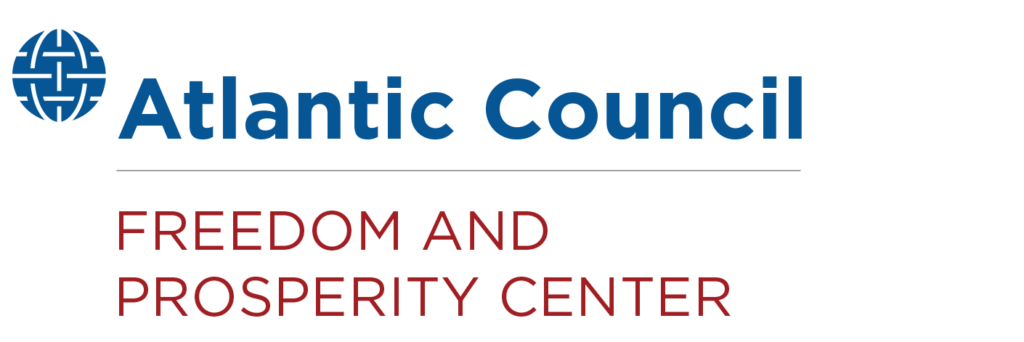
The Freedom and Prosperity Center aims to increase the prosperity of the poor and marginalized in developing countries and to explore the nature of the relationship between freedom and prosperity in both developing and developed nations.
Atlantic Council TV
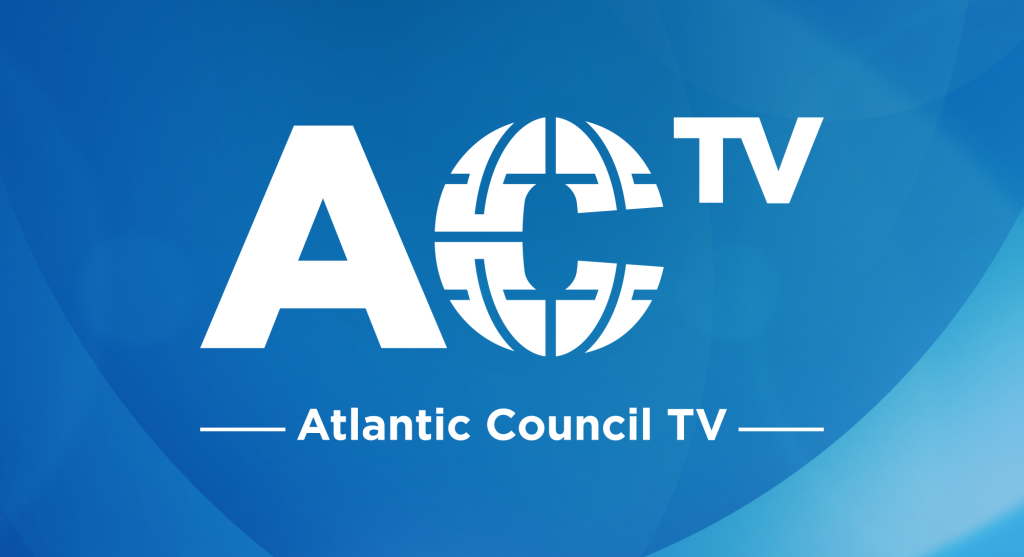
Watch this event and more content on ACTV
Follow the conversations shaping our world. Available on all major platforms.
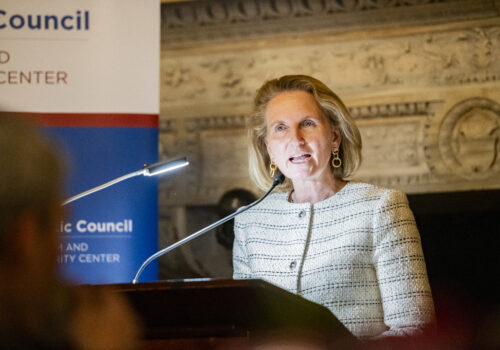
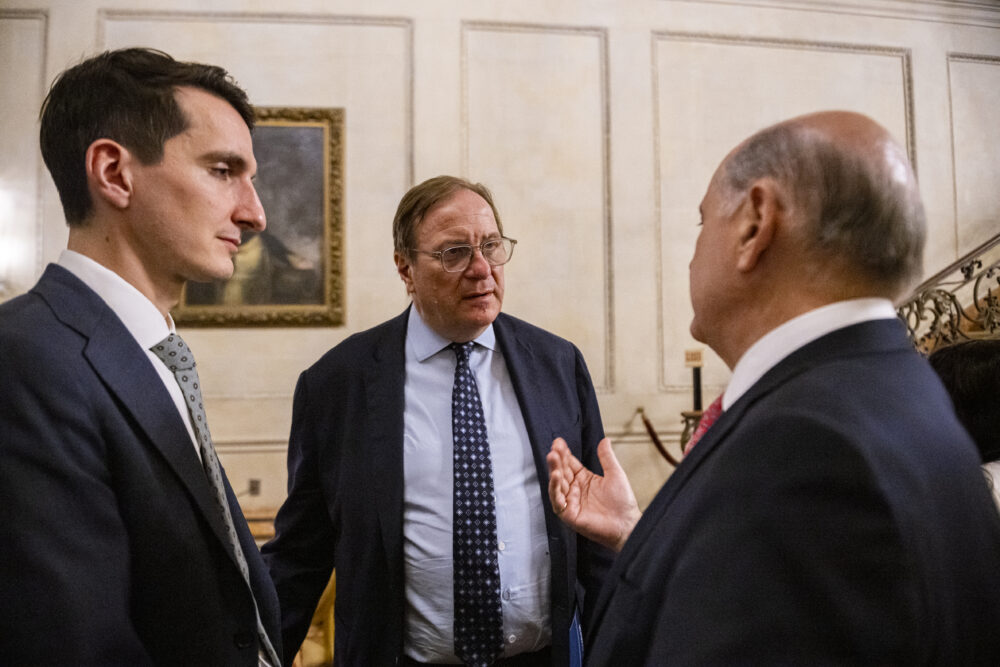
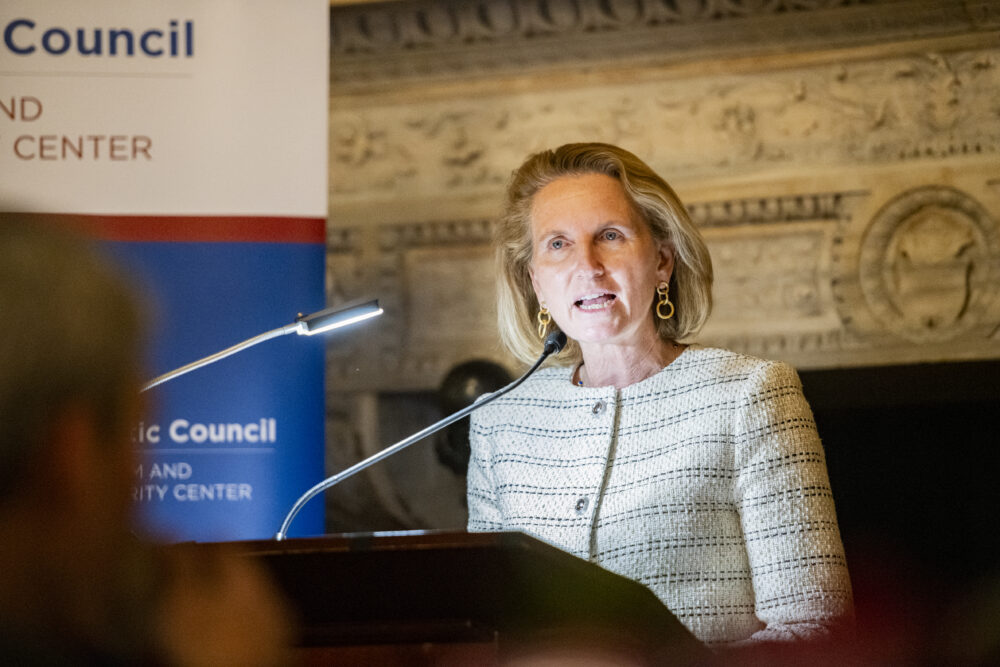
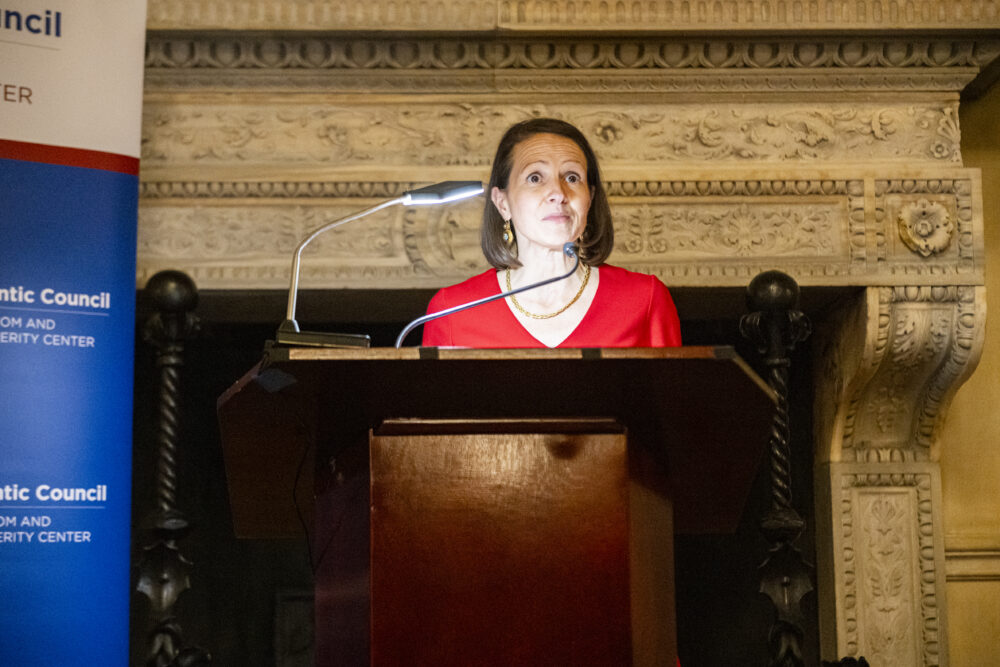
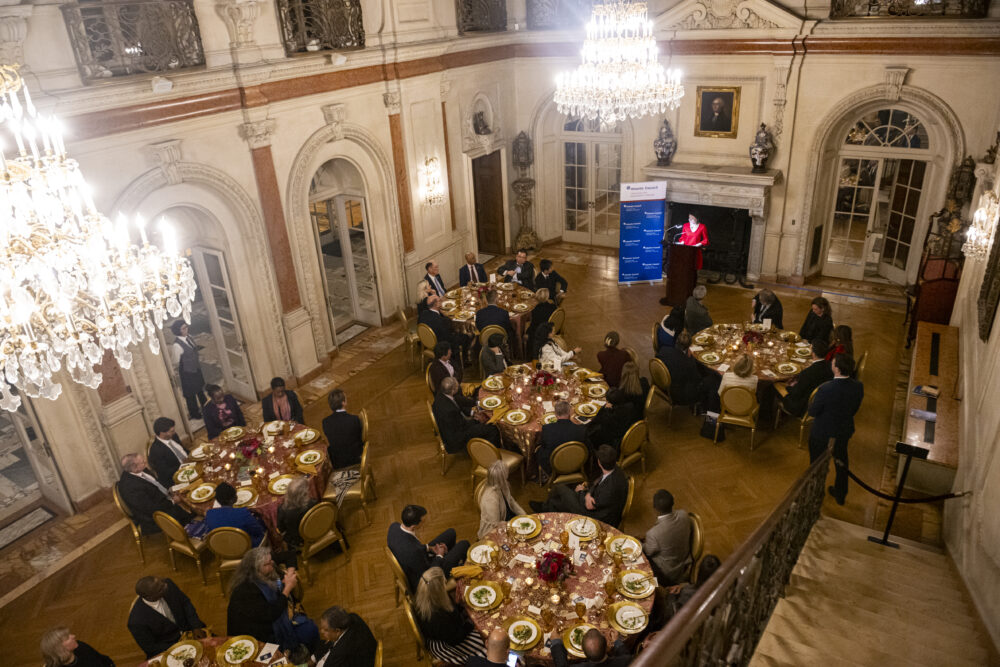
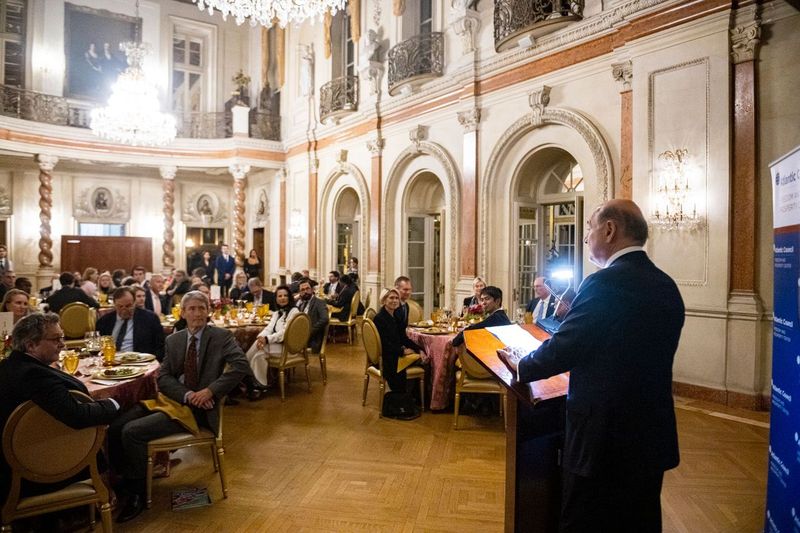
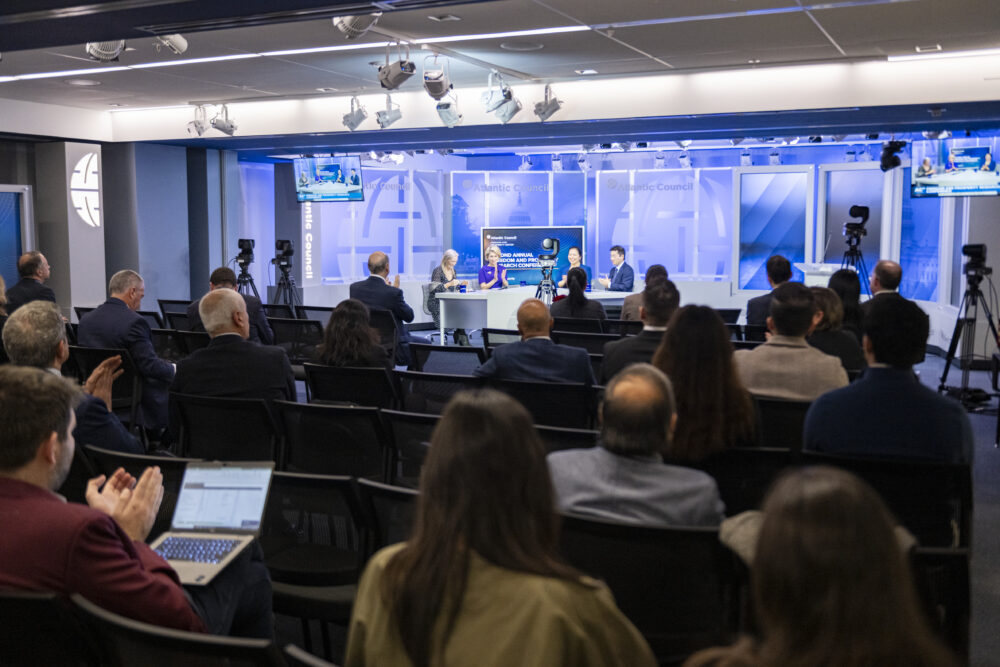
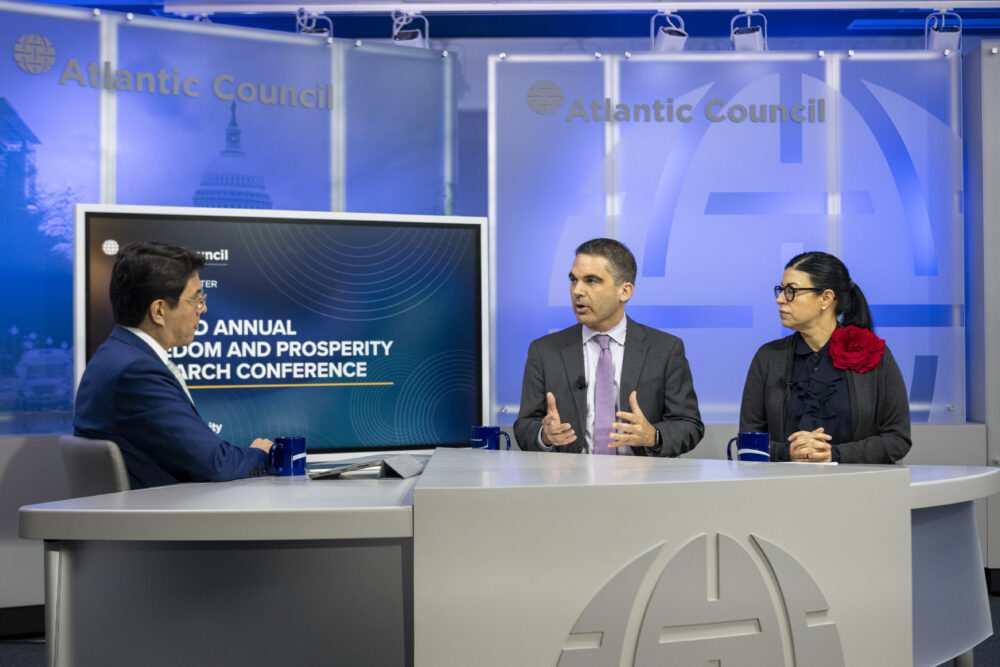
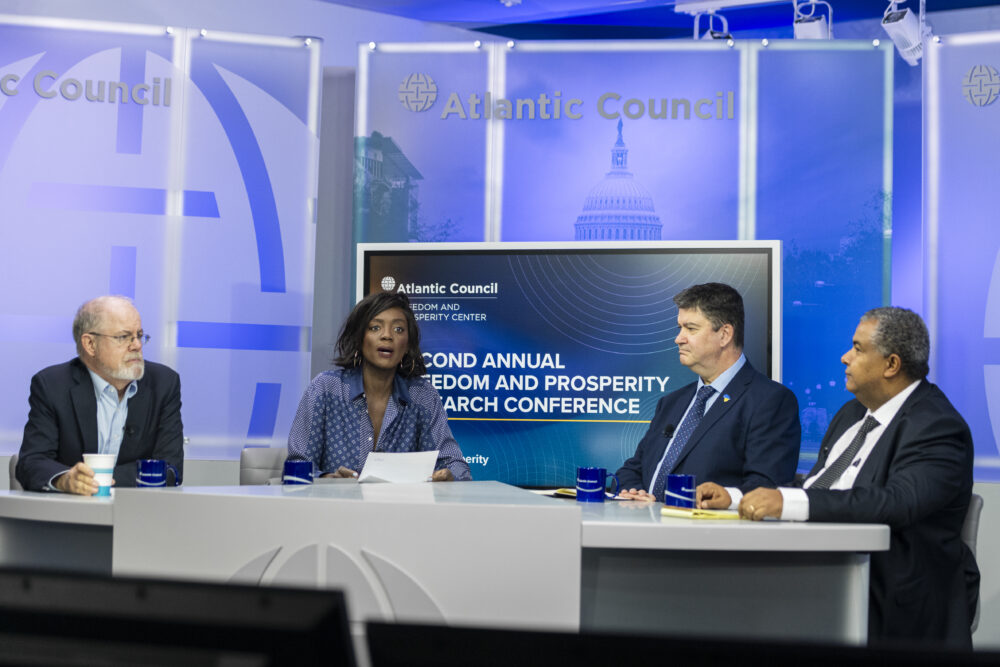
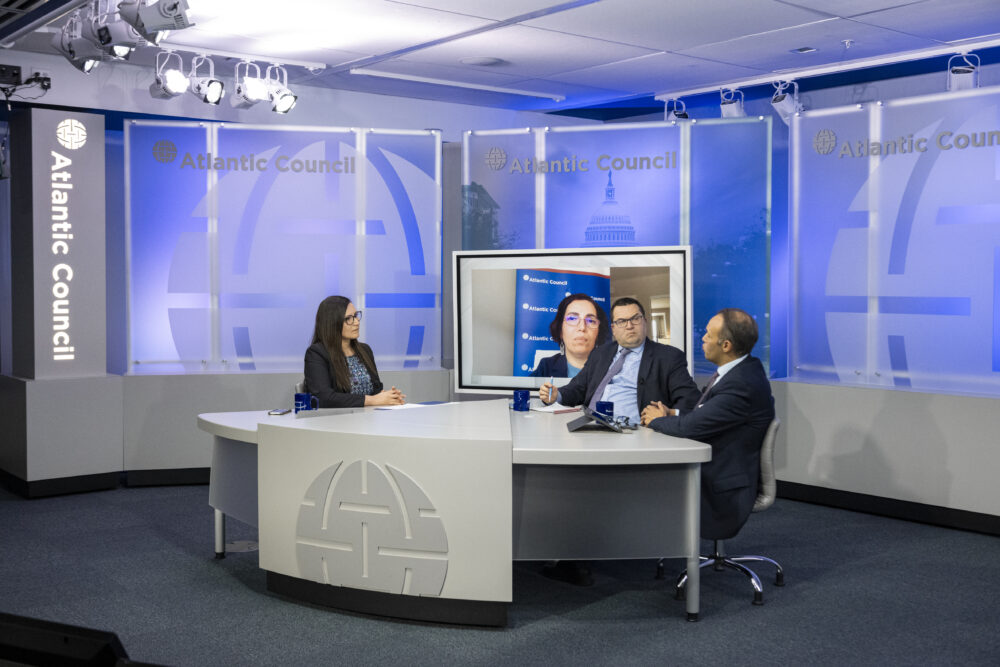
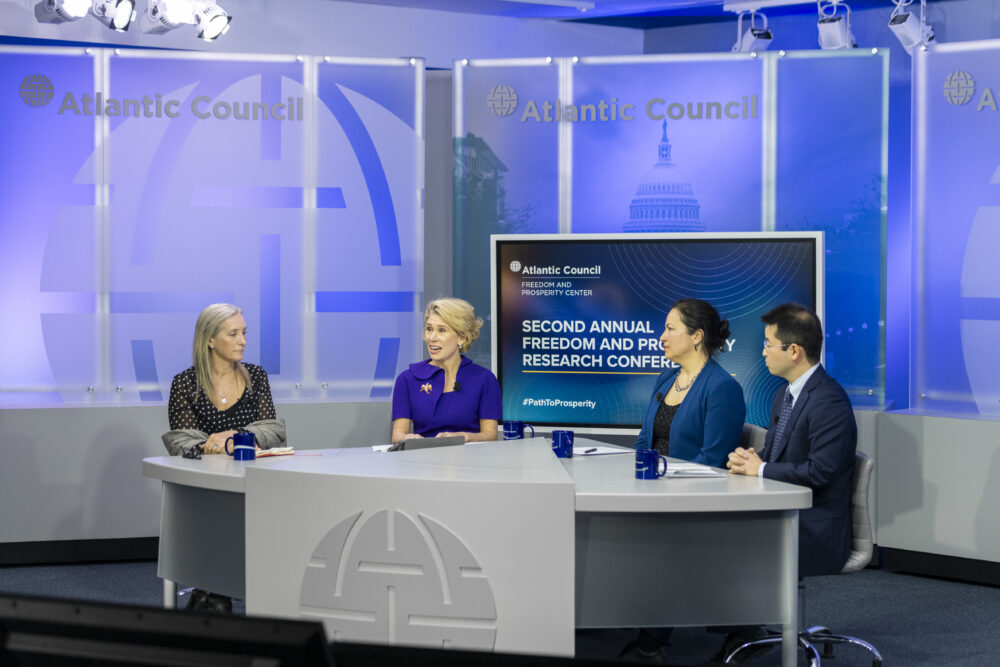
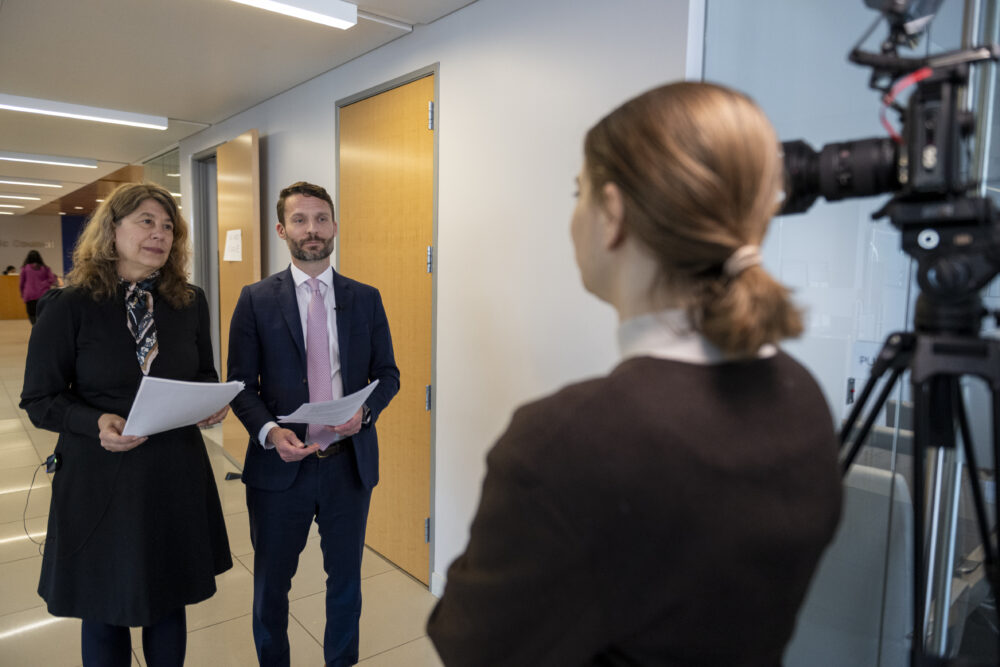
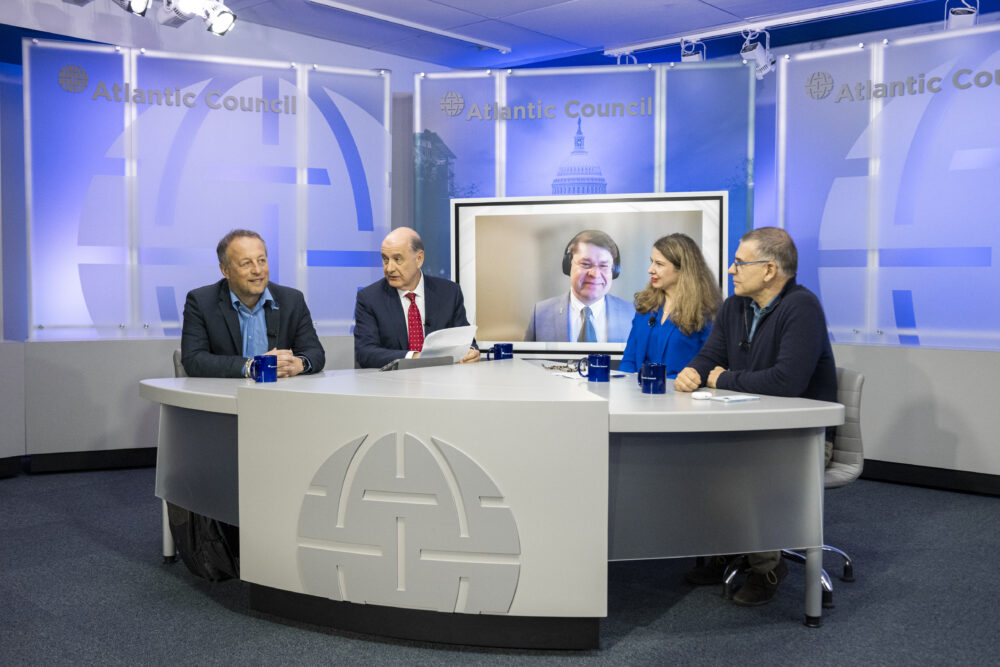
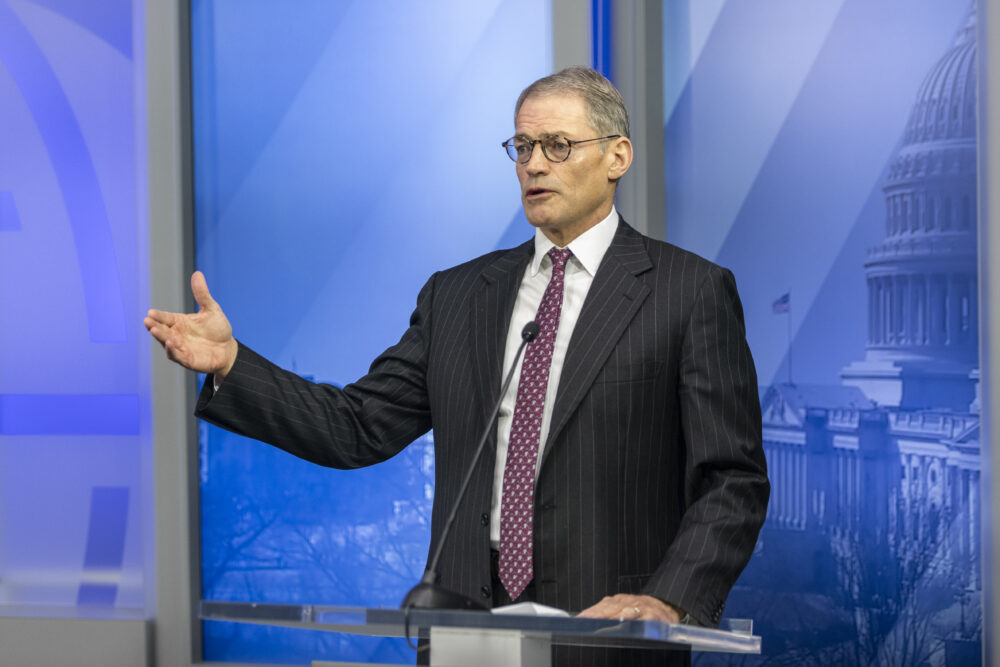
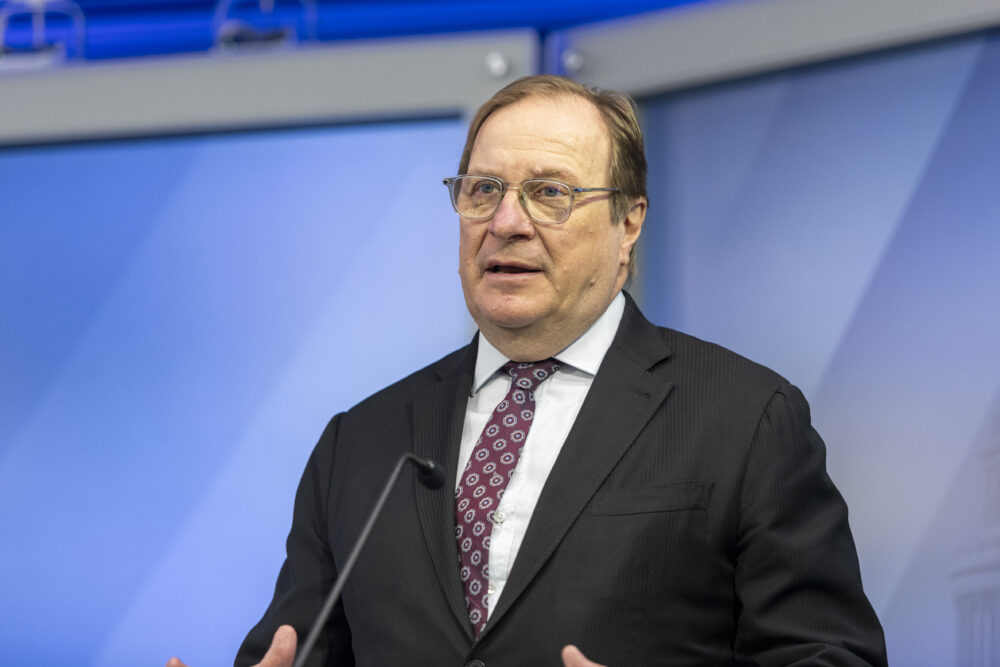
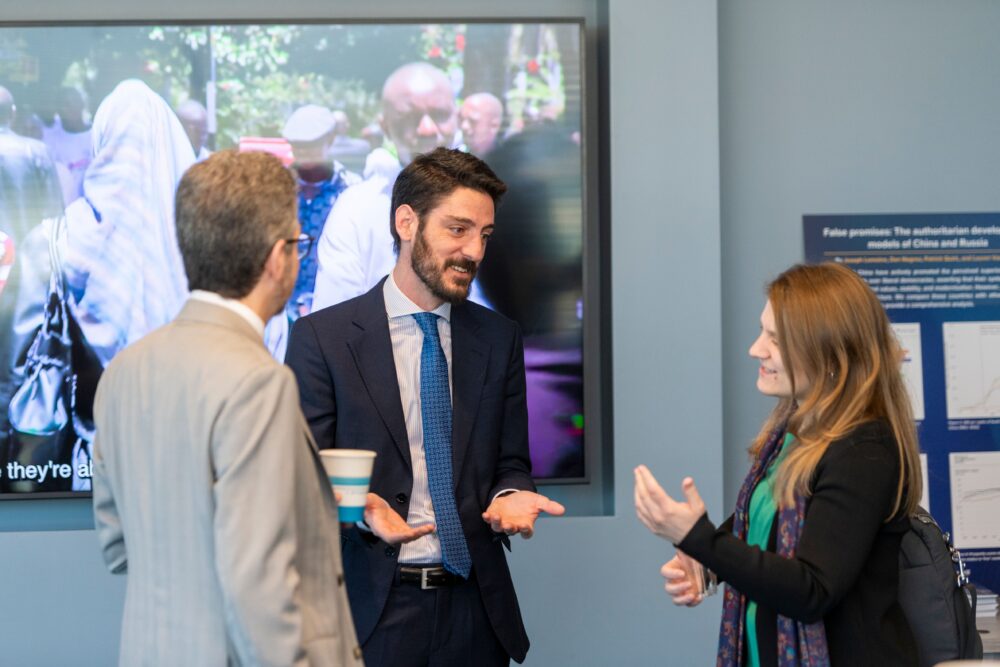
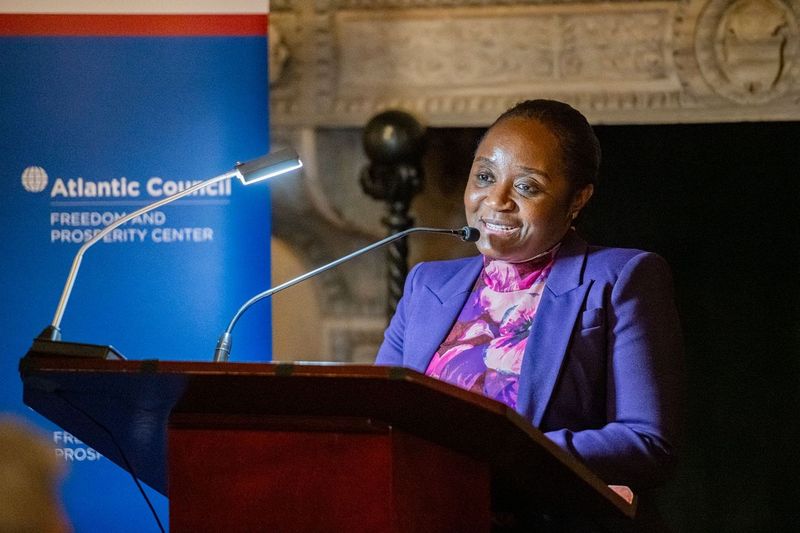
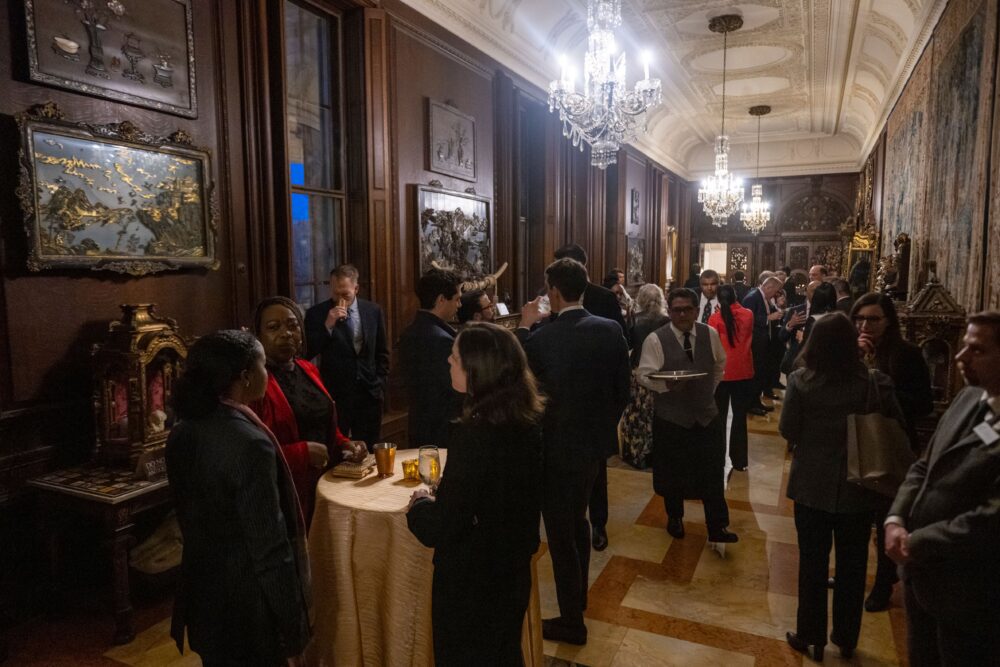
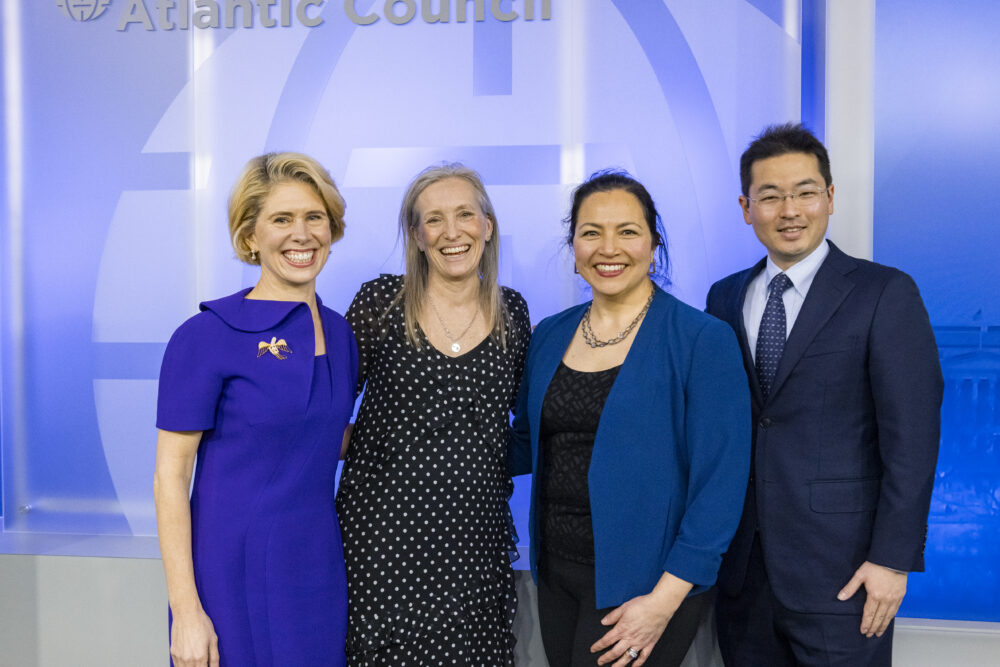
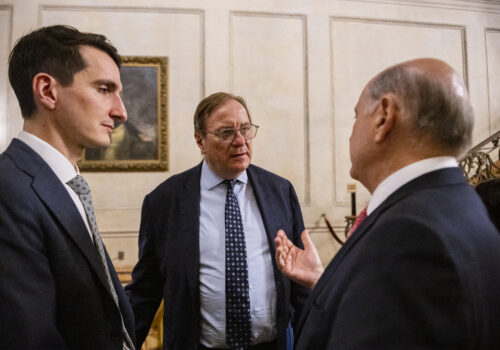

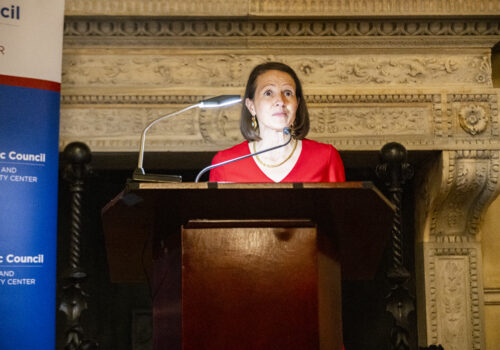
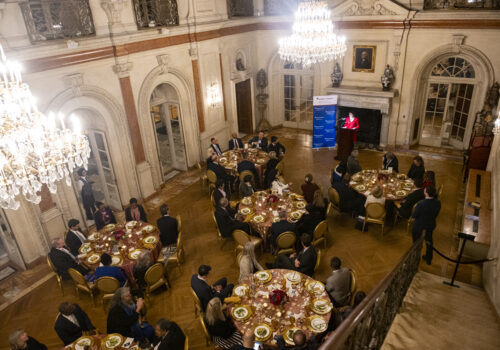
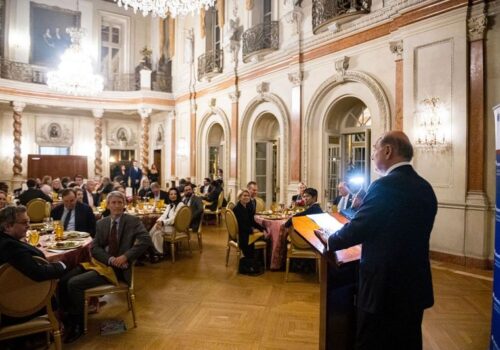

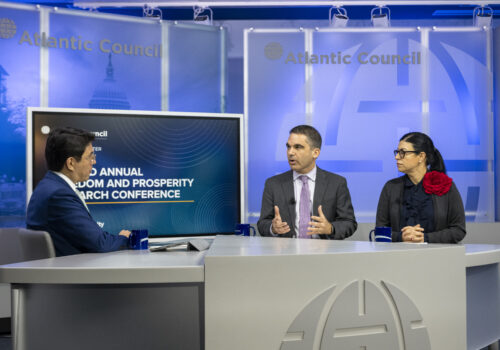
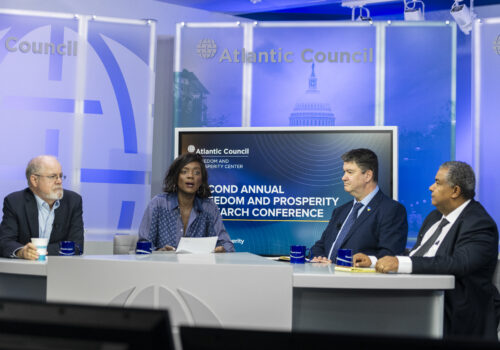
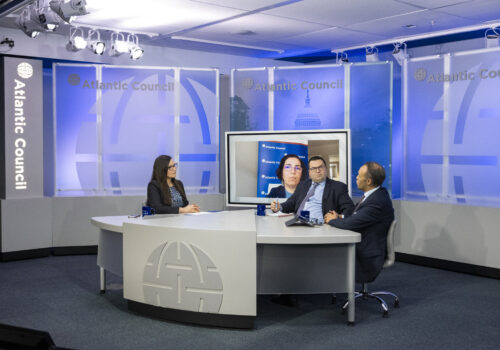
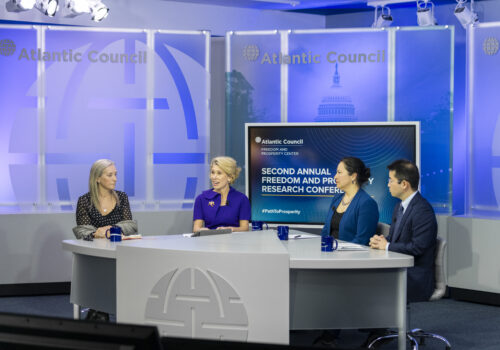
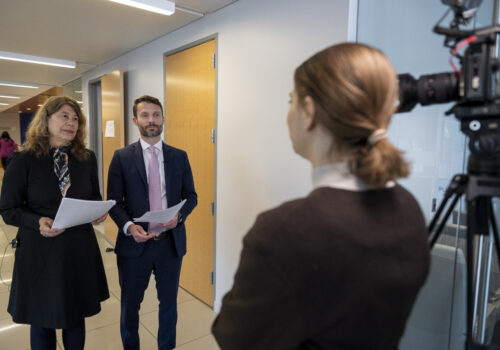

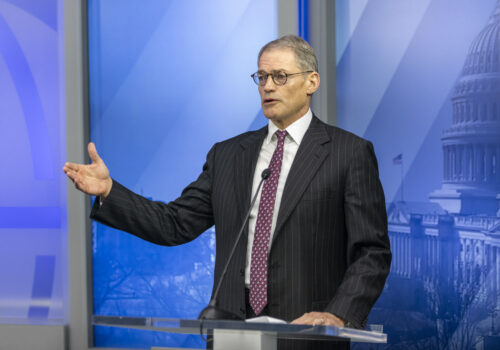
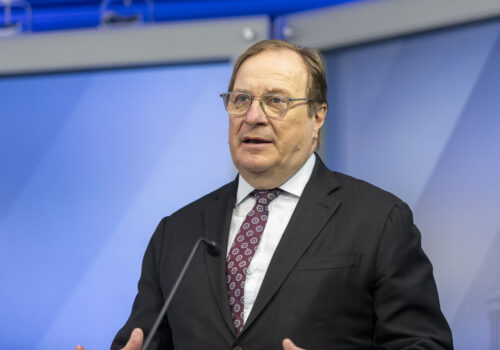
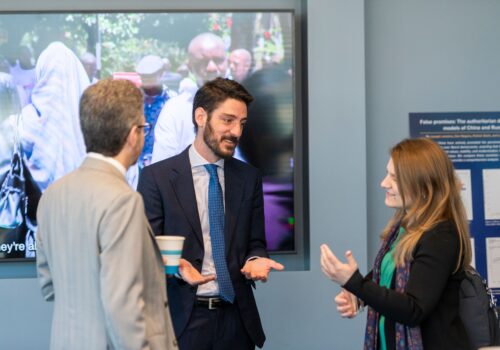
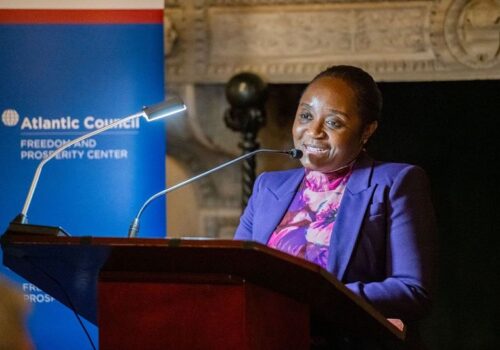
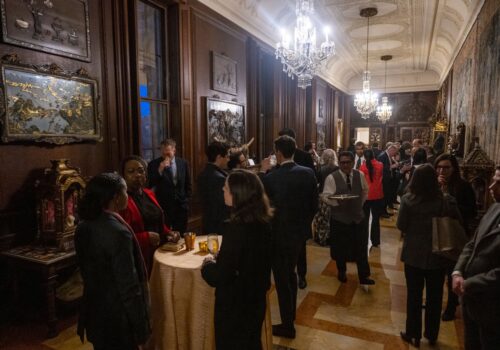
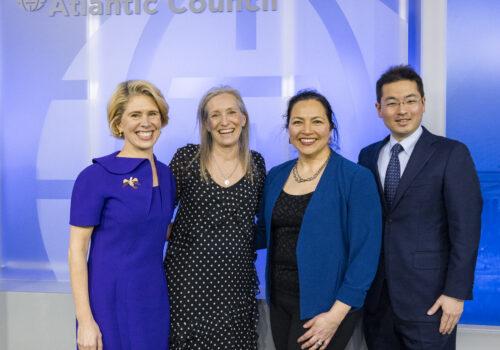


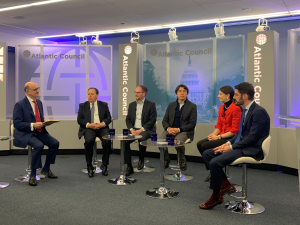
Follow the conversation on X, formerly known as Twitter, with @ACFPCenter and @AtlanticCouncil using #PathToProsperity